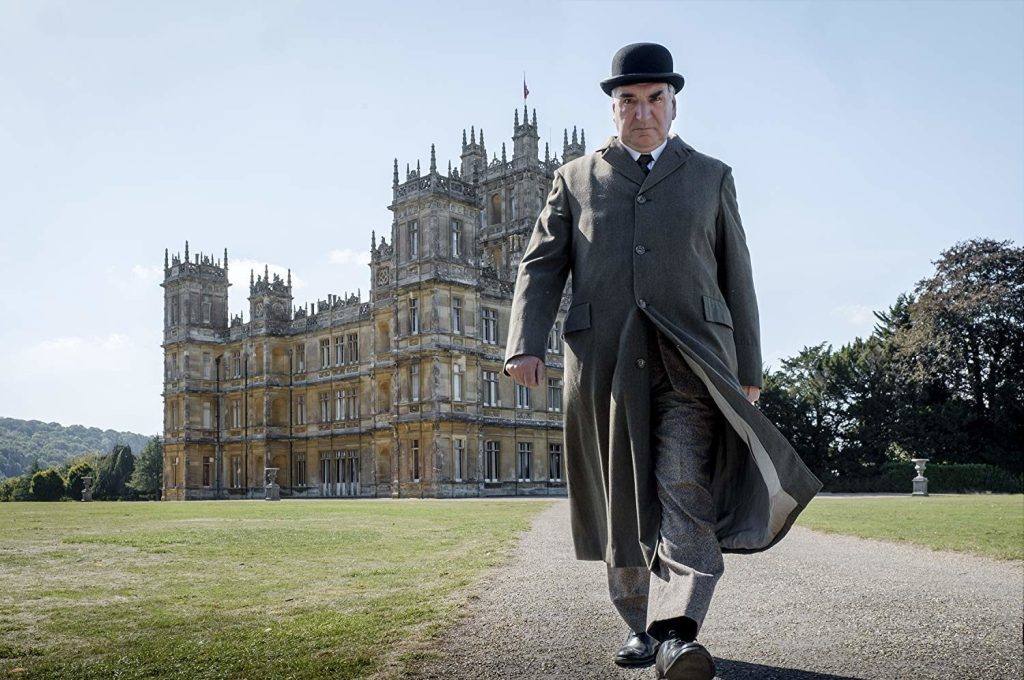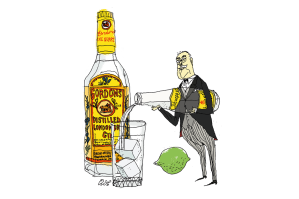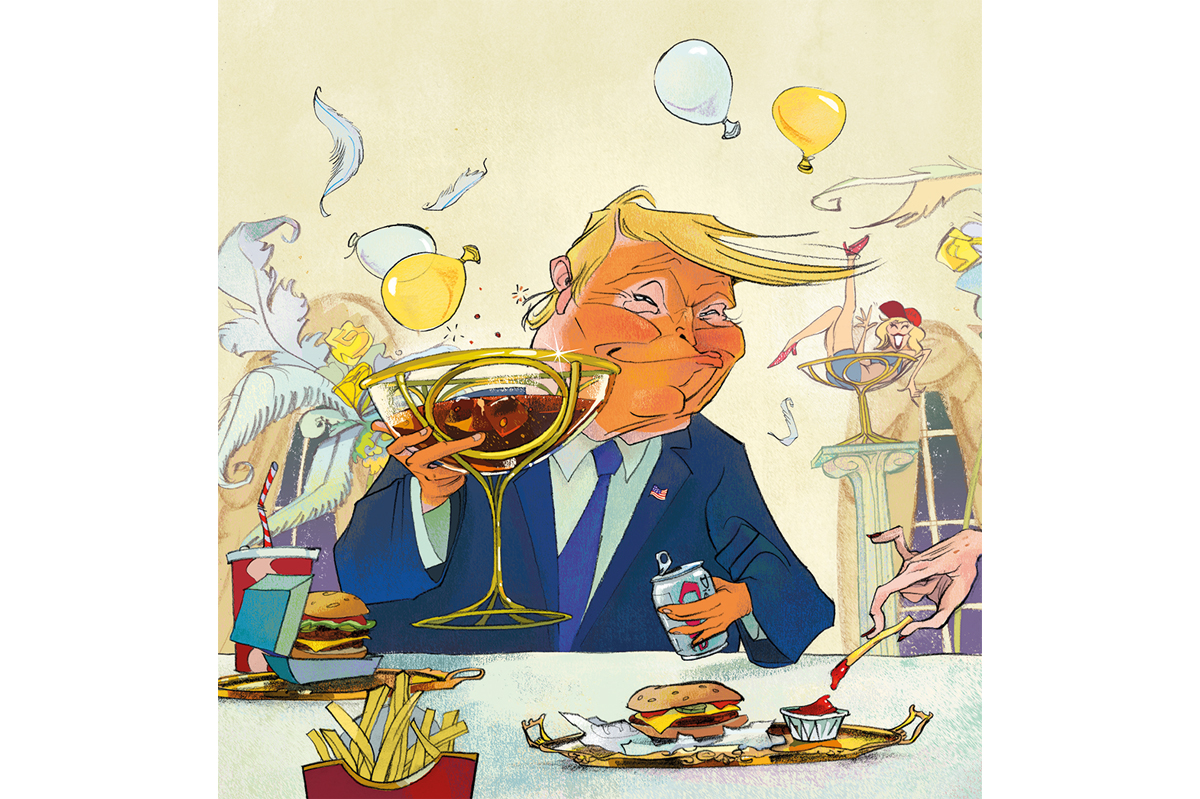This article is in
The Spectator’s inaugural US edition. Subscribe here to get yours.
Tina Turner believed that she and Ike were the reincarnation of god-kings from ancient Egypt. That, she reasoned, was why they’d been reincarnated in Memphis, Tenn.; their souls would feel at home in a city that, like Memphis in ancient Egypt, was sited on a big river and noted for its artisanry. In a perversion of Buddhism by celebrity culture, people select past lives that are more interesting than their present ones. Plenty of people believe they used to be Napoleon Bonaparte, but when was the last time you met someone who boasts of having been an illiterate Corsican goat-herder who married his cousin?
Talking of inbred illiterates and country matters, the past lives of the British aristocracy retain their appeal too. The present lives of the aristocracy are less appealing. The poor things were hunted to near extinction by estate taxes after the War; the survivors are reduced to selling tickets to rubberneckers and running tearooms in the stables. Some of the most ardent purchasers of tickets, scones and souvenir coffee mugs come from nations who, in a moment of past-life lunacy, purged themselves of their upper classes. A torrent of Chinese, Russian, French and, of course, American visitors wander through the big houses of England, all wondering what it must have been like to have been the 12th Duke of Buggerly, with all that land and all those servants.
Americans forbid themselves titles and hierarchy in their present lives, but they indulge their inner lives by dreaming of forbidden past lives. The presidency is weak magic compared to the hard stuff; an ex-president totters away to a golf cart and book tour, but Meghan Markle will always be a duchess. Providing it’s kept in its proper place, this undemocratic recidivism is, as a masochistic carpenter might say, a harmless vice.
The proper place for the contemplation of these matters is PBS on a Sunday night. The unspoken secret at the heart of liberal media is that PBS exists for only two purposes, neither of them to do with the news. One is making children’s programs with a cryptically soft-left moral. The other is buying in ‘Masterpiece’ costume dramas, packed with reactionary, sexist and discriminatory content that makes Laura Linney’s nostrils flare when she introduces it. The first of these import hits was Upstairs, Downstairs, a saga of masters and servants in the early 20th century. The most recent is Downton Abbey which, being a saga of masters and servants in the early 20th century, is Upstairs, Downstairs reincarnated.
The milking of the Downton phenomenon has now produced a movie. Its cinematic milkmaids are Michael Engler, whose previous convictions include eight episodes of Sex and the City and four of Downton; and Julian Fellowes, who came up with the Downton idea and wrote the first 52 episodes. Fellowes is an expert tugger at the udder of class nostalgia, and his hands are smoothed with the milk of human snobbery. He is descended from the Fellowes-Gordons of Knochespoch, but changed his surname to Fellowes-Kitchener after marrying Lord Kitchener’s great-great-niece. He then pestered the Queen for a Royal Warrant of Precedence so that his wife, Lady Emma, might enjoy title equivalent to the dignity of an earl, and he the reflected groveling thereof.
In other words, Fellowes knows his subject — not family drama, which is the same whether you live in a palace or a hut, but class hierarchy and its pleasures. And Fellowes is, like many a middle-class striver, good at his job — so good, in fact, that he now sits in the House of Lords as Baron Fellowes of West Stafford. That’s meritocracy for you.
All is as it should be in the Downton movie. The upper classes are polite, paternalistic and earnest about horses. The lower orders are servile but prone to resentment when they feel neglected. The middle classes are irritating do-gooders like Mrs Crawley. The casting is excellent, the acting heroically straight-faced and the plots plausible, as though the past is somewhere we’ve been before. In this case, we have. In Upstairs, Downstairs, Edward VII came to visit. In the Downton movie, his son George V drops in.
This is aristocratic pedigree, cinema-style, but Downton, like all bluebloods, also has a skeleton in the family tree. In 2002, Fellowes wrote the script for Robert Altman’s saga of masters and servants in the early 20th century, Gosford Park. The proprieties of the whodunnit were observed minimally, the proceedings hijacked by Maggie Smith as the poor relative who dispenses acidulous one-liners like Oscar Wilde in an itchy crinoline. For Downton, Fellowes reincarnated Smith’s character as the Dowager Countess of Grantham, and sublimated Gosford Park’s class war into the country-house comedy of the odd couple Lord Grantham (Hugh Bonneville) and his batman Mr Bates (Brendan Coyle), who has an onanist’s name and a stiff leg because he took one for his lordship in the Boer War.
Fellowes has gently pulled that thread of knowing absurdity from Downton’s first episode — the one in which Mr Pamuk, a handsome Ottoman diplomat, took a tumble in the afternoon hunt, and was then ridden to death after dinner by Lady Mary. But that’s why everyone loves Downton, and secretly wishes they could be de-incarnated back into it. The past is a different country; they did things properly there.
This article is in The Spectator’s inaugural US edition. Subscribe here to get yours.



























